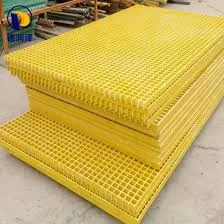fiberglass ducts demonstrate exceptional resistance against ...
Exceptional Resistance of Fiberglass Ducts A Comprehensive Overview
Fiberglass ducts have become increasingly popular in various industries due to their remarkable resistance properties, which set them apart from traditional materials like metal and plastic. This article delves into the exceptional resistance characteristics of fiberglass ducts, making them an ideal choice for numerous applications.
One of the most significant advantages of fiberglass ducts is their superior resistance to corrosion. In environments where duct systems are exposed to moisture, chemicals, or harsh pollutants, traditional materials often succumb to rust and degradation. Fiberglass, composed of a combination of glass fibers and resin, inherently resists corrosion, making it suitable for use in industrial settings, wastewater treatment facilities, and even marine applications. This property translates to longer service life and reduced maintenance costs, significantly enhancing the overall durability of the ductwork.
In addition to corrosion resistance, fiberglass ducts exhibit excellent thermal insulation properties. These ducts can effectively maintain temperature control, reducing heat loss in HVAC systems. This insulation capability not only improves energy efficiency but also provides an added layer of comfort in indoor environments. Unlike metal ducts, which can become hot or cold to the touch and may promote condensation, fiberglass maintains a more stable temperature profile. This quality is particularly beneficial in climates with extreme temperature fluctuations, where maintaining a consistent indoor temperature is crucial.
fiberglass ducts demonstrate exceptional resistance against ...

Another area where fiberglass ducts shine is in their lightweight nature. Compared to metal counterparts, fiberglass is significantly lighter, which simplifies installation procedures and reduces the load on support structures. This characteristic is especially advantageous in retrofitting existing buildings where adding weight could pose structural challenges. Furthermore, the lightweight feature allows for easier handling and transportation, speeding up the installation process and cutting down labor costs.
Fiberglass ducts are also recognized for their fire-resistance qualities. Many fiberglass products are treated with flame-retardant additives, allowing them to meet rigorous fire safety standards. This property safeguards against the spread of fire, making fiberglass a precautionary choice in commercial buildings, public spaces, and industrial applications.
Moreover, fiberglass ducts are often crafted to mitigate sound transmission. Their construction helps in dampening noise, contributing to a quieter environment—a vital factor in healthcare facilities, educational institutions, and offices. This acoustic performance, combined with other resistance properties, makes fiberglass ducts an all-encompassing solution for modern ductwork needs.
In summary, fiberglass ducts demonstrate exceptional resistance against corrosion, temperature fluctuations, weight, fire hazards, and sound transmission. Their unique properties not only enhance their functionality but also contribute to environmental sustainability through energy efficiency and longevity. As industries continue to prioritize durability and performance, the use of fiberglass ducts is expected to rise, solidifying their place as a vital component in contemporary ducting solutions. With these exceptional features, it is clear why fiberglass ducts are becoming the preferred choice for many applications in various sectors.
Latest news
-
Oblate Tanks: Space-Saving, Durable Liquid Storage SolutionsNewsAug.27,2025
-
High-Performance Piping System Solutions for Industry & Commercial UseNewsAug.26,2025
-
Precision Fittings: Durable & Reliable Industrial & Plumbing SolutionsNewsAug.25,2025
-
Practical Steps: Unlock Success with Our Proven GuidesNewsAug.24,2025
-
Transport Tanks: Safe, Durable & Efficient Liquid HaulingNewsAug.23,2025
-
High-Quality Piping Systems for Efficient Flow & DurabilityNewsAug.22,2025











